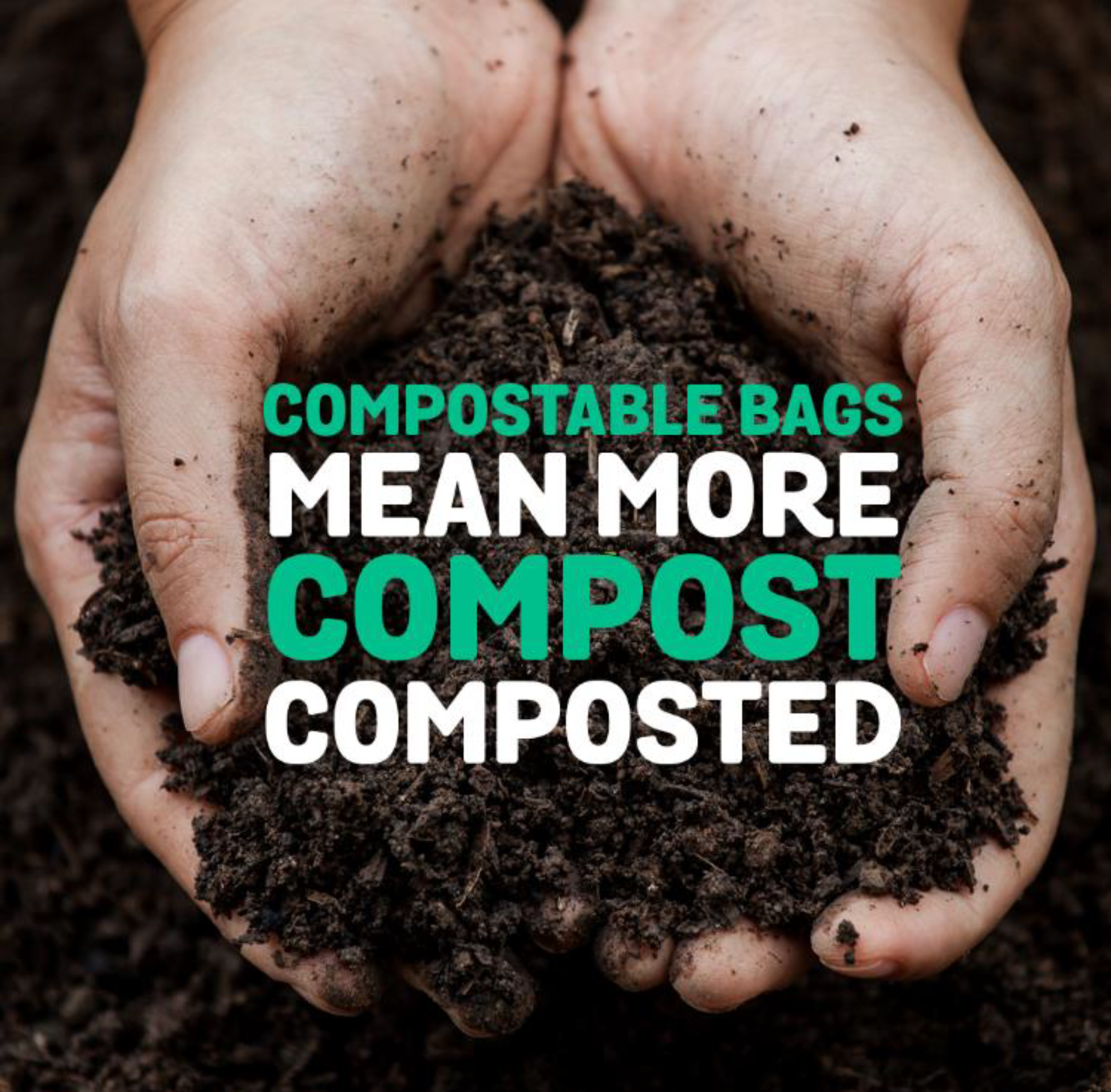Ritchies Launches MyEcoBag
Pioneering a Compostable Future for Australian Households
Ritchies is proud to introduce MyEcoBag, a compostable shopping bag that represents our commitment to sustainability and waste reduction. By using these bags, we’re not only helping customers make eco-conscious choices but also helping address Australia’s pressing waste management challenges and meet National Waste Targets.
Why Choose MyEcoBag?
- Certified Compostable: MyEcoBag adheres to the strictest Australian and international composting standards. It’s compostable in home composts, approved council green bin programs (always check with your council first!), and industrial facilities, playing a crucial role in promoting a circular economy.
- Eliminating Plastic Waste: Australian households produce 6.4 million tonnes of organic waste annually. By replacing traditional plastic bags with MyEcoBag, Ritchies is actively working towards reducing this staggering figure and supporting the National Plastics Target to replace 70% of plastic packaging with recyclable or compostable alternatives by 2030.
- Convenience & Durability: MyEcoBag is designed for everyday use, holding up to 10kg of groceries. It’s made to be strong, reliable, and easy to use, just like traditional plastic bags.
Environmental Impact of MyEcoBag
- Reducing CO2 Emissions: Organic waste in landfills emits methane, a powerful greenhouse gas that accelerates climate change. By using MyEcoBag for food scraps, households can help reduce CO2 emissions. According to the NSW EPA, diverting just one tonne of organic waste from landfill prevents 1.5 tonnes of CO2 from being released. Compostable bags have been shown to increase organic diversion rates by 30%, boosting compost production and supporting more effective waste management.
- Supporting Council Green Bins/FOGO Programs: Over 80% of Council Food Organics and Garden Organics (FOGO) programs across Australian councils already use compostable bags to encourage food and organic waste diversion. By using MyEcoBag, Ritchies customers support these initiatives, helping to divert up to 30% more organic waste from landfills.
Breaking Down Process:
- Rapid Decomposition: MyEcoBag decomposes in as little as 90 days in a compost setting, making it an ideal addition to home composting systems and approved council green bin programs.
- No Microplastics: Unlike traditional plastic bags, MyEcoBag leaves behind no microplastics or other toxic residues, ensuring a cleaner and healthier environment.
Why Not Paper or Plastic?
- Beyond Conventional Alternatives: Paper production emits 3.1 times more CO2, uses four times more water and requires millions of trees, while conventional plastic takes hundreds of years to breakdown, leaving behind harmful microplastics. MyEcoBag offers a compostable and ease of use.
Join Ritchies in Driving Change: By choosing MyEcoBag, you’re directly contributing to a reduction in plastic waste and a healthier planet.

10 FAQs About MyEcoBag: Compostable Shopping Bags at Ritchies
1.What makes MyEcoBag different from traditional plastic bags?
•Unlike traditional plastic bags, MyEcoBag is made with GMO-free corn and other certified compostable materials. They break down completely when composted, leaving no harmful microplastics or toxic residues.
2.How does MyEcoBag help reduce plastic waste?
•MyEcoBag replaces single-use plastic bags, helping reduce the 2.5 million tons of plastic waste produced in Australia every year. By choosing compostable bags, we can significantly decrease the amount of plastic ending up in landfills, contributing to the national goal of replacing 70% of plastic packaging with compostable alternatives by 2030.
3.Is MyEcoBag suitable for use in Council Green Bin/FOGO programs?
•Yes, MyEcoBag is suitable for use in Council Food Organics and Garden Organics (FOGO) programs that accept certified compostable bags. After use, simply fill with food scraps and place in your approved council green bin or home compost. It will break down naturally as part of the composting process. Be sure to check with your local council to confirm they accept compostable bags in their green bin program.
4.How long does it take for MyEcoBag to break down?
•MyEcoBag breaks down in as little as 90 days in composting conditions. Whether in a home compost bin, council green waste collection, or an industrial composting facility, the bag transforms, along with food scraps and garden trimmings, into nutrient-rich soil, leaving no microplastics or other harmful residues.
5.Does using MyEcoBag reduce CO2 emissions?
•Absolutely! When food waste ends up in landfills, it generates methane, a potent greenhouse gas. By using compostable bags like MyEcoBag, food waste can be diverted to composting, significantly reducing greenhouse gas emissions. In fact, it can reduce CO2 emissions by 1.5 metric tons per ton of organic matter. This not only helps lower the overall carbon footprint but promotes healthier, more nutrient-rich soil.
6.Are compostable bags really better than paper bags?
•Yes. Although paper is an alternative, it comes with significant environmental drawbacks. Paper bags require millions of trees to produce and generate six times more CO2 emissions compared to compostable materials. Additionally, paper bags have lower strength and moisture resistance, making them less practical for shopping and food waste diversion.
7.How much weight can MyEcoBag hold?
•MyEcoBag is designed for durability, capable of holding over 10kg of groceries. This strength makes it a reliable and eco-friendly alternative to traditional plastic bags for everyday use.
8.Can MyEcoBag be used more than once?
•Yes! MyEcoBag is sturdy enough for multiple uses before composting. After it has served its purpose, simply fill it with food scraps and place it in your approved council green bin or home compost, where it will break down naturally.
9.Does MyEcoBag leave any harmful residues or microplastics behind?
•MyEcoBag is made with certified compostable materials that fully break down, leaving no toxic residues or microplastics. It decomposes completely in compost, alongside food scraps and other organic waste, leaving only nutrient-rich compost that enriches the soil and supports a healthier ecosystem.
10.How does MyEcoBag contribute to a circular economy?
•MyEcoBag is part of a circular economy model that minimizes waste by transforming it back into a resource. By composting MyEcoBag, we help increase food waste diversion rates and reduce contamination in compost products. This approach not only decreases reliance on traditional fossil-fuel-based plastics but also enhances the overall composting process and supports environmentally friendly waste management.
